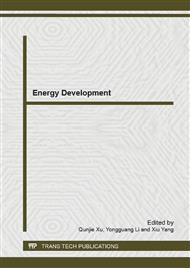p.2929
p.2936
p.2940
p.2946
p.2950
p.2954
p.2958
p.2962
p.2966
Semantic Analysis Investigation of Data Mining Technology in Network Forum
Abstract:
Along with the network popularization and reform of the government administration, e-government gradually popularized. The populace can comment on government work and the related policy on its website. Because of the richness of Chinese language and dialect, people can use their own dialect.The same opinion may have different statements. The worker have some difficulties when collect and analyze these views. Ontology is a specification of a certain field,to express concept of the particular field and the relationship between them.Ontology can be used for semantic analysis of the various views, to analyze that the people is "agree" or "against", "support" or "not support". Even though different vocabulary, through semantic analysis, can be classified according to their semantic.In the process of analysis, analyse the text comments received throught the data miningstatistics.In addition, also need to construct the relevant language ontology. Language ontology defines many synonyms and near synonyms. Ontology as a reference to sort the comments of the people, analyze the attitude of the people and related laws.
Info:
Periodical:
Pages:
2950-2953
Citation:
Online since:
December 2013
Authors:
Price:
Сopyright:
© 2014 Trans Tech Publications Ltd. All Rights Reserved
Share:
Citation:


